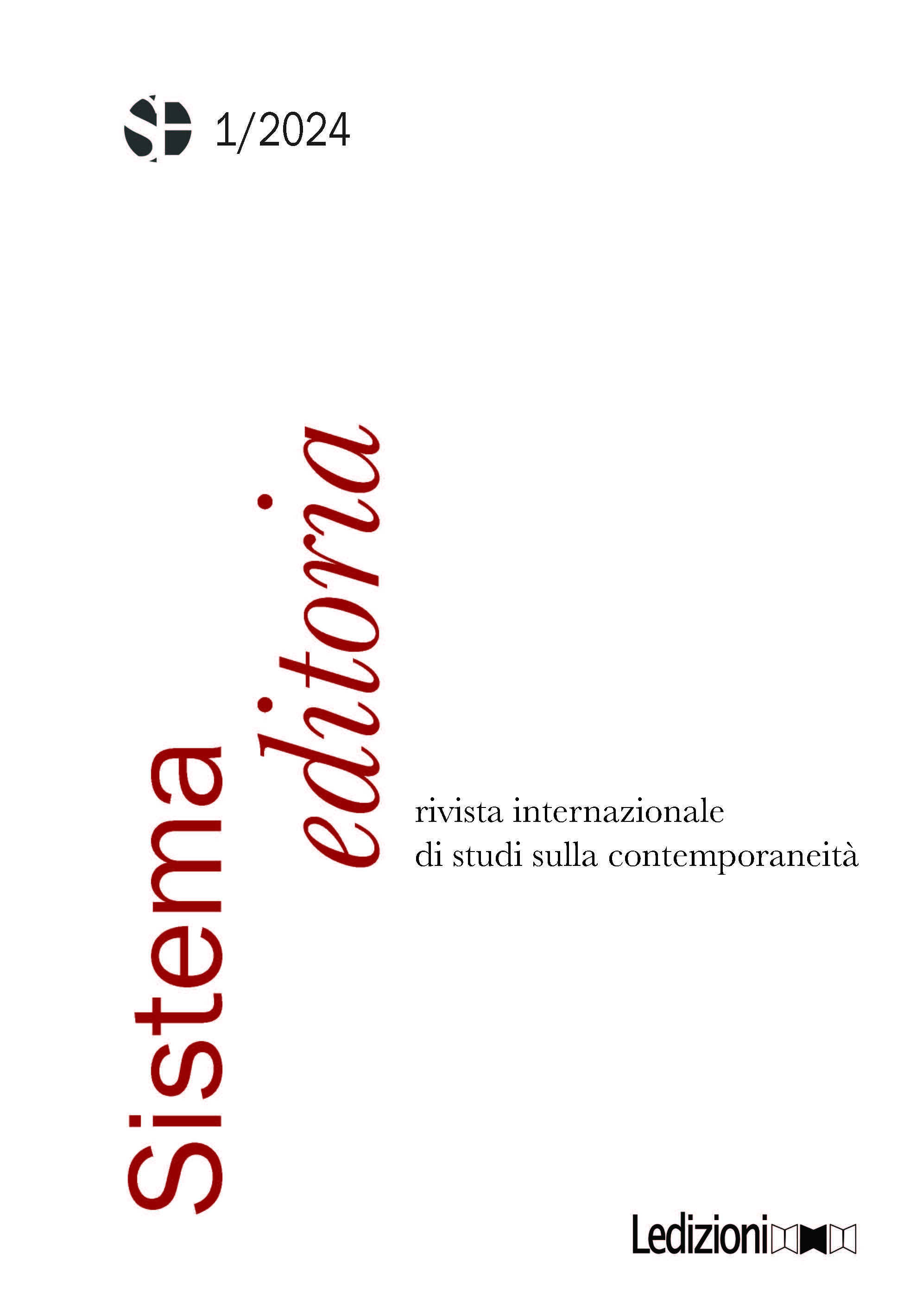Published 2024-08-26
Keywords
- webnovel,
- China,
- online literature,
- digital platform,
- innovation

This work is licensed under a Creative Commons Attribution-ShareAlike 4.0 International License.
Abstract
In China, online literature is becoming increasingly popular. The rapid spread of digital novels has had a huge impact on traditional literature, thus entertaining an exponential number of readers.
However, it is completely different from the concept of ‘ebook’, as Chinese publishers are still reluctant to develop digital books. Web literature is, however, linked to stories self-published on applications or websites.
Online literature is completely different from the concept of ‘ebook’, as Chinese publishers are still reluctant to digital books; web literature is, however, closely linked to stories self-published on applications or websites.
The webnovels are dissimilar to editorial literary production, and the biggest difference lies in the way these novels are written and published. Thus, this article’s purpose is providing an analysis of online literature’s phenomenon and why it’s becoming increasingly popular not only in China itself, but also in the West. Works of web literature have transformed from an experimental literary form into a popular cultural industry, and its key is the commercialization.
We will therefore start from a brief history of Chinese publishing, focusing more specifically on the Ming dynasty (1368 - 1644), and then we will implement a description of internet novel’s overall characteristics. Afterwards, we will deal with the response from publishing houses (usually aimed at translating books by English writers) and from SAPPRFT (Guojia xinwen chuban guangdian zhongjiu 国家新闻出版广电总局 State Administration for Press, Publication, Radio, Film and Television), the CCP’s executive branch aimed at controlling the media.
Furthermore, further space will be given to the description of the online publishing platform China Literature (阅文 yuewen), the most important and rich in titles in the country, and its agreement signed in 2016 for translation and electronic publishing with the American site Wuxiaworld.
The conclusion will be dedicated to total considerations regarding what was said in the article body.

